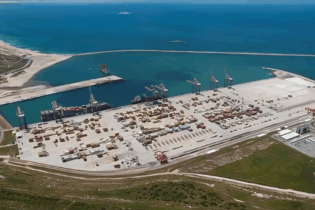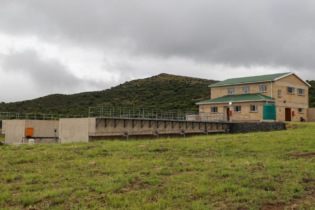Johannesburg Water is set to resume its infrastructure upgrade and rehabilitation programme for Soweto. This programme is part of the overall infrastructure renewal programme across the city. WaterandSanitation Africa reports.
Currently, the City of Johannesburg has a population of approximately 3.8 million, with an annual demand of approximately 493 000 Mℓ of water, growing at 3.93% annually. In 10 years’ time, the city is expected to provide 724 Mℓ/a, against the current Rand Water allocation of approximately 500 000 Mℓ. In a statement, Gerald Dumas, managing director of Johannesburg Water (JW) said, “This scenario prompted Johannesburg Water to develop a water conservation and demand management strategy to reduce this future demand by at least 90 000 Mℓ over the next 10 years as per the Department of Water Affairs’ National Water Demand Management Strategy.” To address these challenges, JW conducted a study across the city, Soweto included, to establish the patterns of water bursts. From these findings, the organisation estimated the capital needed to wipe out backlogs in the infrastructure rehabilitation and upgrading projects. JW will be channelling and investing billions in the coming financial years towards infrastructure upgrade and the rehabilitation of water networks across the city. JW is acutely aware of the problems that are currently caused by ageing and incomplete water infrastructure in Soweto. According to Dumas, “We are also determined to curb water losses, wastage and unaccounted for water through the efficient management of water resources, implementation of innovative water projects, and an aggressive programme of upgrading ageing infrastructure and installing new infrastructure in Soweto.” This programme was initially launched in Soweto as Operation Gcin’amanzi, a massive infrastructure upgrade project that was suspended in May 2008 following the Mazibuko court judgment, in which a number of residents in Phiri queried the allocation for free basic water and the implementation of prepaid water meters. An appeal was heard by the Supreme Court of Appeal (SCA) in February 2009, and a further appeal was heard by the Constitutional Court (CC) in September 2009.The CC judgment was passed on 8 October 2009, whereby the judgments of the High Court and SCA were set aside. On prepayment water meters, the CC held that, contrary to the High Court and SCA, the national legislation and the city’s by-laws authorise the latter to introduce prepaid water meters as part of infrastructure upgrade or related projects. The CC further ruled that the installation of the meters was neither unfair nor discriminatory. On this basis, the JW is now proceeding to move ahead with the programme.
Before the suspension, Operation Gcin’amanzi had moved up a gear, with initial results on water conservation exceeding anticipated results. Water consumption was brought down significantly, resulting in a 79% reduction in unaccounted-for water. Close to 220 million litres of water was saved in Phiri alone at the time. “Our results clearly demonstrate that the potential exists to achieve similar results throughout the Greater Soweto area for the remaining 160 361 properties. With the successful upgrading of the infrastructure, the estimated annual savings in water purchase from Rand Water was to be in the region of R170 million,” says Dumas. In this phase of the programme, the infrastructure rehabilitation and upgrade will comprise the completion of all mains replacements, leak detection and retrofitting, replacing of wasteful and damaged devices as well as the installation, upgrade and repair of water meters. Although all of Soweto will benefit from this project, the first phase will focus on completing the work in the areas before the suspension of the OGA. All households will be visited to complete any outstanding work, repair damage from bad workmanship, repair any damaged/faulty meters, install new meters where previously not installed, and effect a software upgrade on all meters. Following all these developments, the JW will embark on addressing the loss of water in Soweto and furthering the mandate of providing uninterrupted service delivery to the communities. Related sub-programmes throughout the city include water mains infrastructure upgrade and renewal, which seeks to provide new infrastructure and general upgrading of water reticulation and related reservoirs and pump stations in identified areas across the city. This is done to support the rapid development of the city and to ensure an acceptable minimum level of service. All these projects have the objective to improve service delivery and customer satisfaction by improving and extending the JW’s infrastructure and replacing old and outdated infrastructure. The infrastructure renewal programme includes a new innovative technology that will become a feature in all new future meter installations and when broken and malfunctioning meters need to be replaced in established areas. Dumas says: “I am confident that we are making great strides to raise the levels of delivery across a range of services to all people of the city. The JW, together with the City of Johannesburg, remains committed to improving the level of water and sanitation services in Soweto, while continuing to work towards making Johannesburg a world-class African city.”





